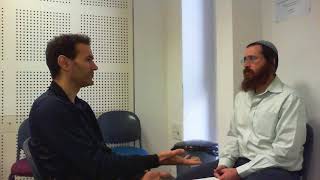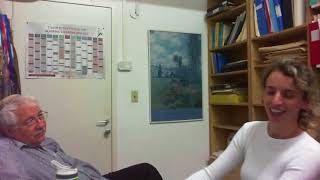Background (103-030-02-0) Assaf and Adina
The patient, is 26 years old and gave birth to her forth child two months ago. She shares her Hassidic community’s values about large families and the woman’s role as a dutiful wife and a dedicated mother.
Chaya , however, feels exhausted after her last birth and cannot contemplate another pregnancy soon. A week before this visit she visited her family doctor to complain of fatigue- hoping that the doctor would find a reason to prescribe contraceptive medication on his own initiative.
At this visit Chaya is to receive the results of the laboratory tests (which actually show only a mild anemia which cannot explain her fatigue). She is determined, in any case, to get a prescription for the Pill, but is embarrassed to request it outright. She is also very concerned to keep the Pill secret from her husband to avoid conflict with him, and to prevent him from involving the Rebbe.
The action
In the first half of the interview the doctor focuses on the issues of mild anemia and tiredness.
Chaya meanwhile drops increasingly more explicit hints about her desire, because of the tiredness, to be given contraception- hints which are ignored by the doctor for most of the interview.
The doctor responds, however, with impressive sensitivity to her exhausting and lonely existence at home and even offers to intervene by advising them, as a couple, how to lessen her load.
Towards the end of the video the doctor finally understands and clarifies that the patient indeed wants the Pill (no matter what), and he responds professionally to her concern for confidentiality.
In the end she leaves with the Pill, and seems happy to return to have the doctor counsel them about lessening her load.
Educational opportunities
- An interesting exercise would be to have the viewers list everything the patient revealed about herself without prompting from the doctor, and to examine to which elements the doctor responded substantially, to which only a bit and to which not at all.
- For discussion: Could this video be viewed as a transcultural interview? And if so, how might that affect the doctor’s approach? [ The doctor would need to learn form the patient in a respectful manner about the “cultural context” of her request. For example : “in your community how do people view… }
- The doctor’s first task in doing the core work of the consultation is to arrive at an agreed-upon agenda for that visit with the patient (i.e. arriving at milestone #2 ). An interesting discussion could be on the extent the to which the doctor succeeded or failed in this task.
- The doctor shows a clear desire to involve the husband in this case: what are the issues for and against?


